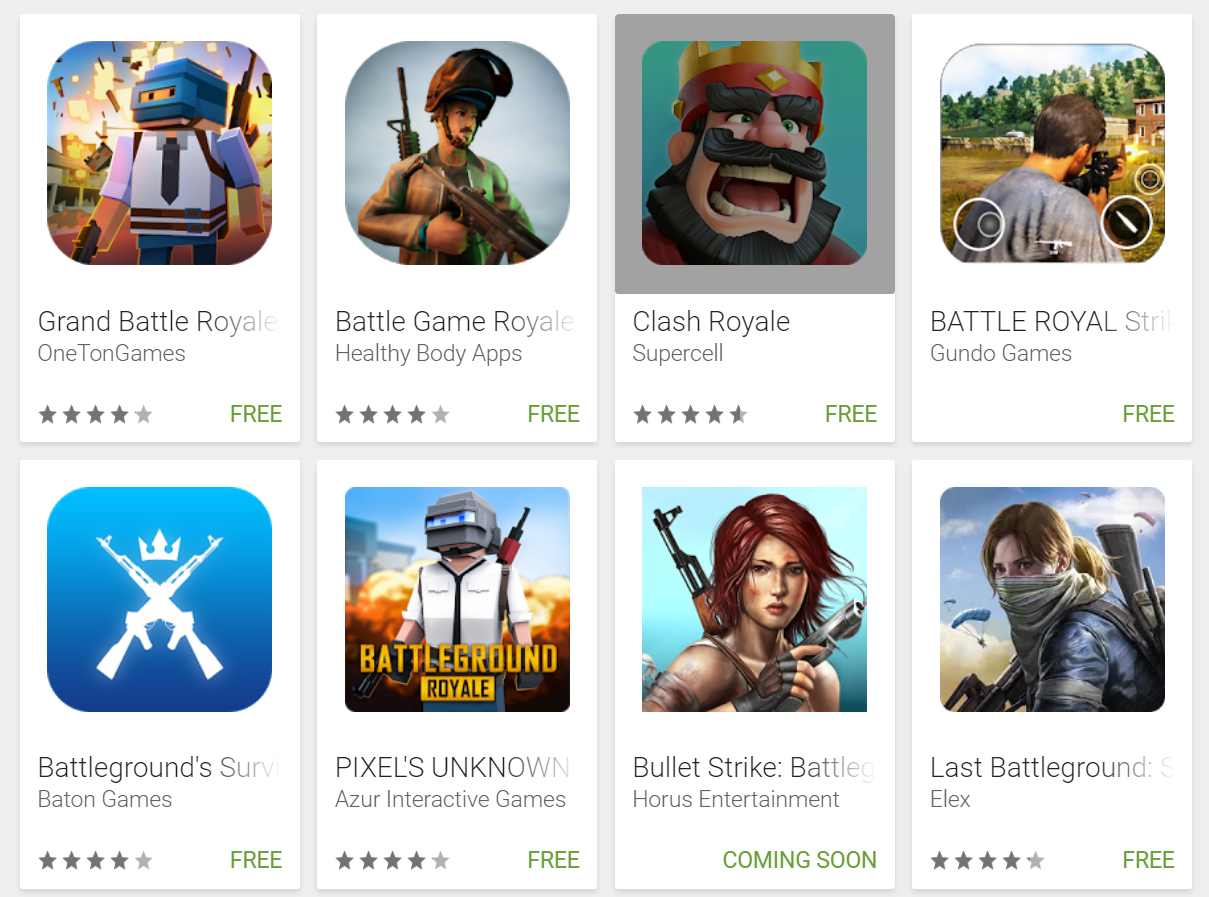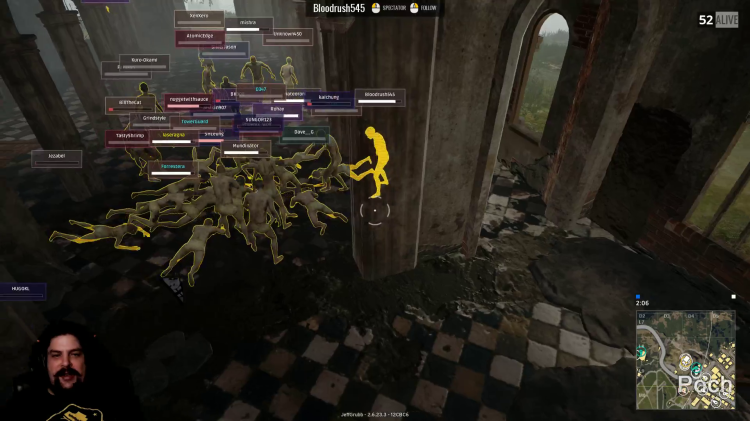Tencent is bringing PlayerUnknown’s Battlegrounds to mobile as part of its deal with the Bluehole Games and its new in-house studio, The PUBG Corporation, but the partners may find that market oversaturated with battle royal competitors by the time it launches.
PUBG for mobile will debut first in China, according to a Tencent announcement on Monday. It didn’t reveal a release date or plans to roll it into other territories. But while PUBG will get off to a slow start on iOS and Android, people around the world can find plenty of clones of the game on the App Store and Google Play right now.

Above: You can get plenty of battle royal action on your phone right now.
Of course, Tencent’s mobile PUBG isn’t going to have to compete against a lot of these imitators. It runs its own app store for Android in China, and Google Play isn’t even officially supported in that country. So Tencent can put PUBG front and center of its distribution channel, which is the biggest app market in China.
But should PUBG mobile make its way to Google Play or the iOS App Store, it will have to face off against the likes of Grand Battle Royale, Battle Game Royale, Battleground’s Survive, Pixels Unknown Battle Ground, Bullet Strike: Battlegrounds, and Unknown Royal Battle. These are almost all slower, simpler, and worse than the original game, but they are out now, and people want to try out this game that they heard about from the PC gaming friends.
June 5th: The AI Audit in NYC
Join us next week in NYC to engage with top executive leaders, delving into strategies for auditing AI models to ensure fairness, optimal performance, and ethical compliance across diverse organizations. Secure your attendance for this exclusive invite-only event.
None of this is to say that PlayerUnknown’s Battlegrounds will have a tough time standing out from this crowd. It should do fine. The game has surpassed 22 million copies sold worldwide with nearly 10 million of those in China alone, and that’s before the game launched on Tencent’s WeGame client. The bigger point is that PUBG has to go mobile to preserve its future. Mobile is where most young people start gaming, and while China has a huge PC gaming audience, smartphone gaming is growing faster in that region.
The PUBG Corp can’t risk that the people who may come to Battlegrounds on PC or consoles for the first time five years from now will have more experience and affinity with some knockoff having more affinity for some knockoff than the legit experience. That’s likely because people are downloading and playing these apps. People have downloaded Grand Battle Royale, which is the most popular mobile clone, more than a million times on both iOS and Android. So maybe that will take over mobile and turn into a behemoth of its own. But that’s what Tencent and The PUBG Corp are attempting to stop.


